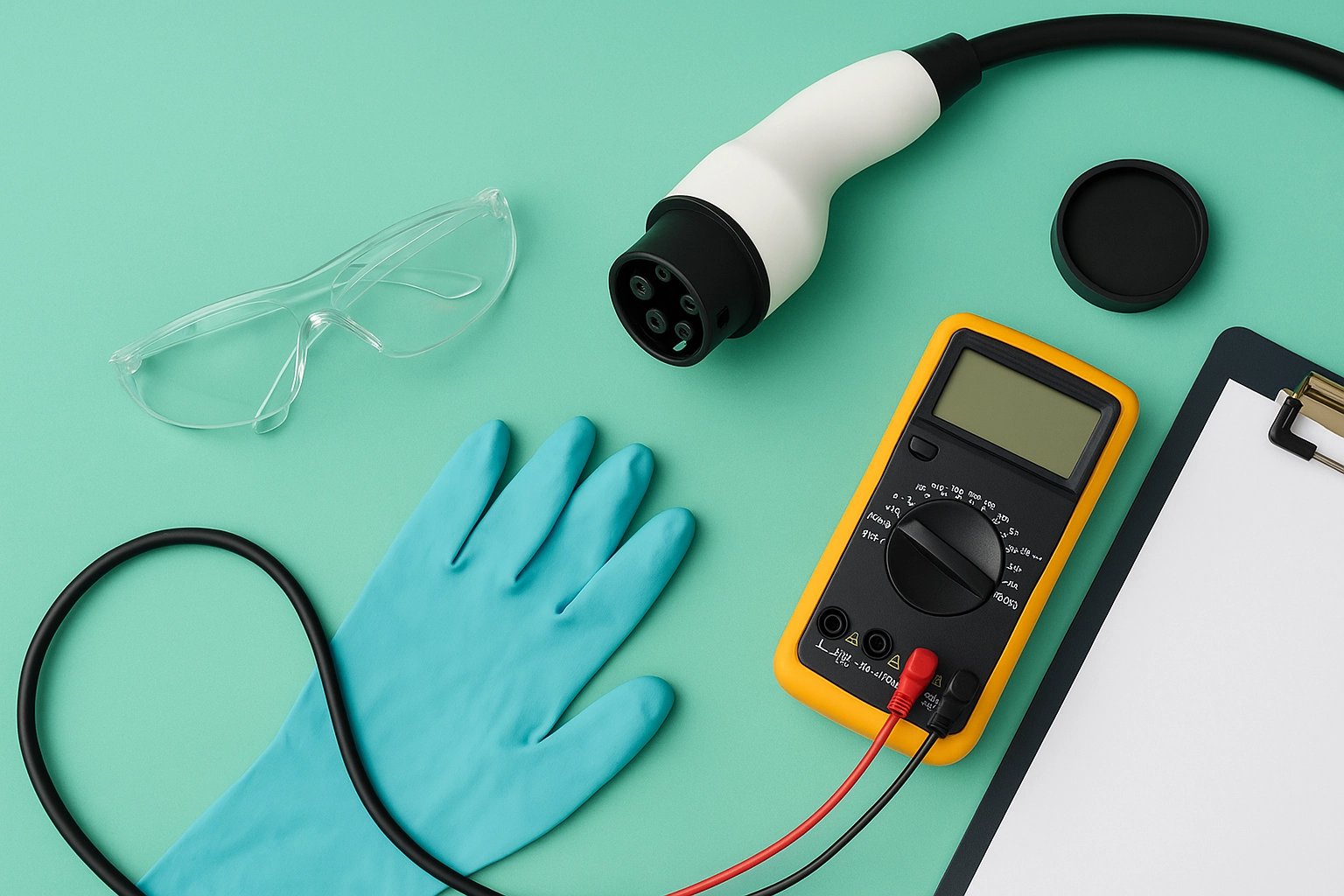EN 50700 Bidirectional Charger System Test
The EN 50700 standard is a cornerstone in the evaluation of bidirectional chargers used for electric vehicles (EVs). These chargers are designed to not only supply power from the grid to the vehicle but also allow the vehicle to return energy back to the grid. This bidirectional capability makes them highly efficient and adaptable, but it also introduces unique challenges when it comes to testing and certification.
Our EN 50700 Bidirectional Charger System Test ensures that these chargers meet all relevant safety, efficiency, and performance criteria as defined in the standard. This is critical for both manufacturers and regulatory bodies to ensure that bidirectional charging systems are safe, reliable, and capable of supporting future smart grid integration.
The test involves a series of comprehensive checks on various aspects of the charger's functionality, including but not limited to: voltage stability, current regulation, power factor correction, efficiency under different load conditions, and the ability to handle bidirectional energy flow. These tests are conducted in controlled laboratory environments that replicate real-world usage scenarios.
The testing process begins with a thorough inspection of all components according to the EN 50700 specifications. This includes verifying the charger's internal circuitry, wiring, and any external accessories such as connectors and cables. Once the initial inspection is complete, we proceed to perform functional tests that assess the charger’s ability to operate in both directions.
During these tests, we monitor key parameters like power input/output, energy consumption, charging/discharging rates, and temperature rise under various conditions. We also examine the charger's communication protocols with the vehicle and its integration into a smart grid infrastructure. Compliance with EN 50700 is verified through rigorous measurement and analysis of these parameters.
Furthermore, our testing facility includes dedicated chambers that simulate different environmental conditions such as extreme temperatures, humidity levels, and electromagnetic interference (EMI). This ensures that the charger can perform reliably under a wide range of operational environments. The results from these tests are meticulously recorded and analyzed to ensure compliance with all relevant standards.
The findings from our EN 50700 Bidirectional Charger System Test are presented in detailed reports, which serve as valuable resources for manufacturers, regulatory bodies, and end-users alike. These reports not only confirm compliance with the standard but also provide insights into potential areas for improvement or optimization of future models.
By choosing our service, you can rest assured that your bidirectional charger systems will meet the highest industry standards. Our team of experts uses state-of-the-art equipment and follows strict protocols to ensure accurate and reliable test results. This commitment to quality ensures that your products are not only safe but also efficient and capable of meeting future regulatory requirements.
Applied Standards
| Standard | Description |
|---|---|
| EN 50700 | The European standard for bidirectional charging systems used in electric vehicles. |
| IEC 61851-23 | International standard for vehicle-to-grid (V2G) connections. |
| American Society for Testing and Materials (ASTM) | Standards related to electrical safety and performance of charging infrastructure. |
| International Electrotechnical Commission (IEC) 62196-3 | Standard for vehicle-to-grid communication protocols. |
Scope and Methodology
The scope of our EN 50700 Bidirectional Charger System Test encompasses a wide range of parameters critical to the safe and efficient operation of bidirectional chargers. The methodology is designed to ensure that all aspects of the charger's performance are thoroughly evaluated.
We begin by examining the charger’s internal components, including its control unit, power conversion modules, and communication interfaces. This initial inspection ensures that there are no manufacturing defects or design flaws that could compromise the charger’s integrity. Once this is confirmed, we proceed to functional tests aimed at assessing various operational scenarios.
These functional tests involve simulating different charging and discharging conditions under controlled environments. We monitor parameters such as input voltage, output current, power factor, efficiency, and temperature rise. The goal is to ensure that the charger operates efficiently across a wide range of load conditions. Additionally, we test the charger’s ability to communicate with both the vehicle and the grid infrastructure.
To further validate the charger's performance, we also conduct tests under adverse environmental conditions. This includes exposure to extreme temperatures, humidity levels, and electromagnetic interference (EMI). These tests are crucial for ensuring that the charger can function reliably in real-world environments. The results from these tests are carefully documented and analyzed to ensure compliance with all relevant standards.
Finally, we compile a comprehensive report summarizing our findings. This report serves as a valuable resource for manufacturers, regulatory bodies, and end-users alike. It not only confirms compliance with the EN 50700 standard but also provides insights into potential areas for improvement or optimization of future models.
Why Choose This Test
The importance of choosing our EN 50700 Bidirectional Charger System Test cannot be overstated. In a rapidly evolving industry, compliance with international standards is essential for ensuring the safety and reliability of charging infrastructure. Our service offers several key advantages that set it apart from others:
Firstly, we employ state-of-the-art equipment and follow strict protocols to ensure accurate and reliable test results. This commitment to quality ensures that your products are not only safe but also efficient and capable of meeting future regulatory requirements.
Secondly, our team of experts has extensive experience in testing bidirectional chargers and is well-versed in the latest industry trends and best practices. We stay updated with the latest developments in the field to provide you with the most relevant and accurate testing services.
Thirdly, we offer a full suite of post-test support services, including detailed reports and recommendations for improvement. These insights are invaluable for manufacturers looking to optimize their products and stay ahead of competitors.
Finally, by choosing our service, you can be assured that your bidirectional charger systems will meet the highest industry standards. This is crucial not only for compliance but also for building trust with customers and regulators alike.





